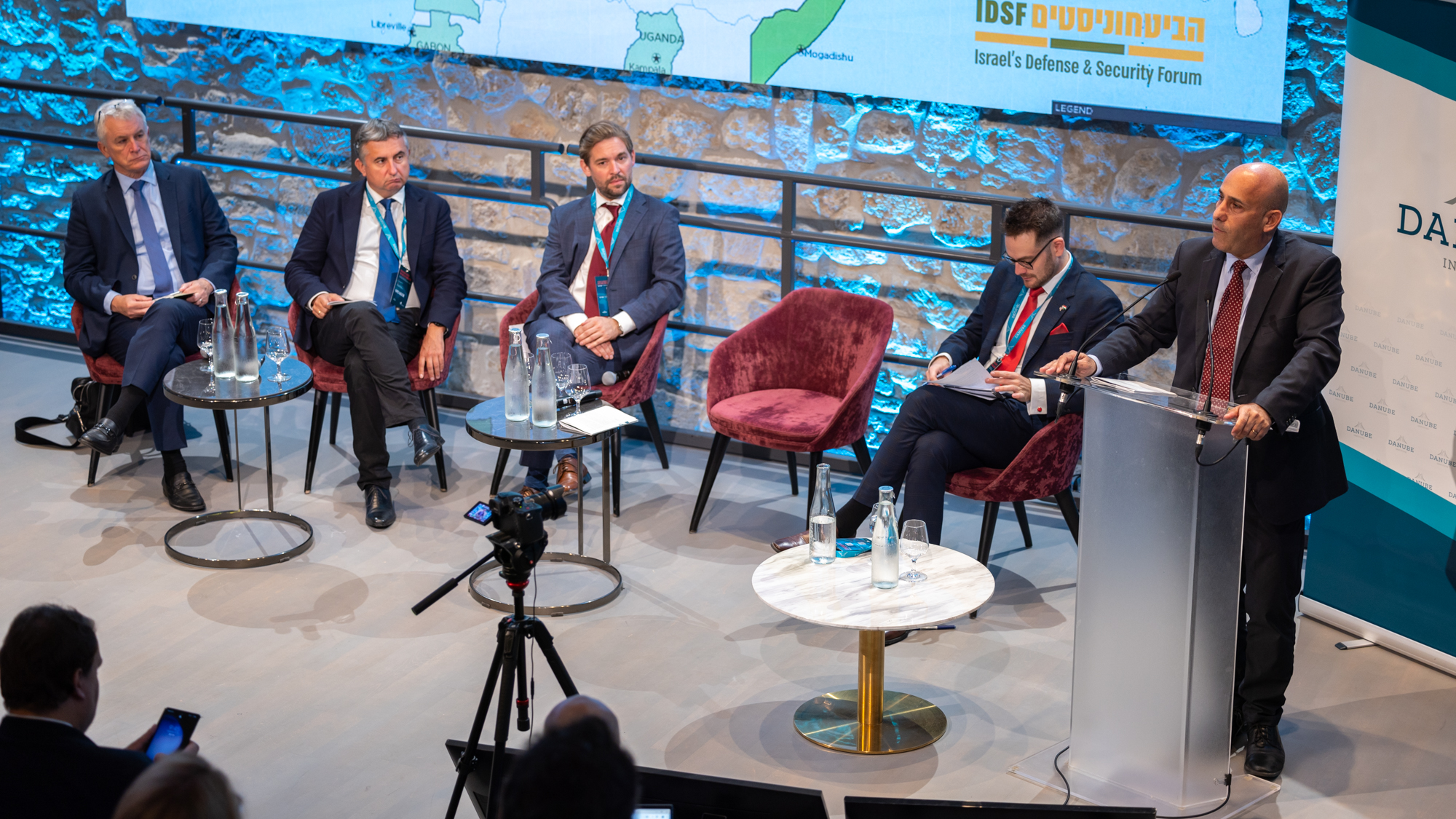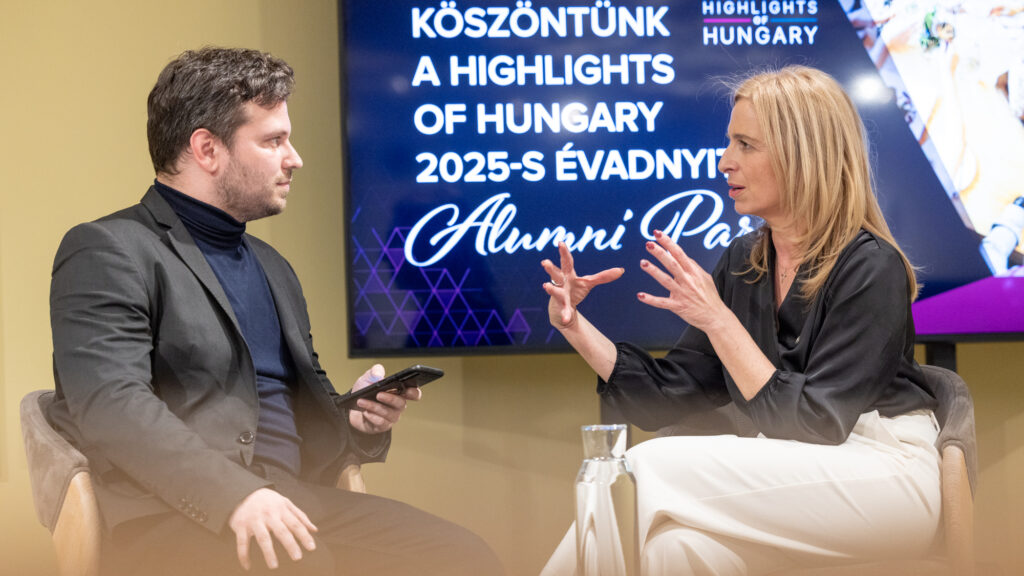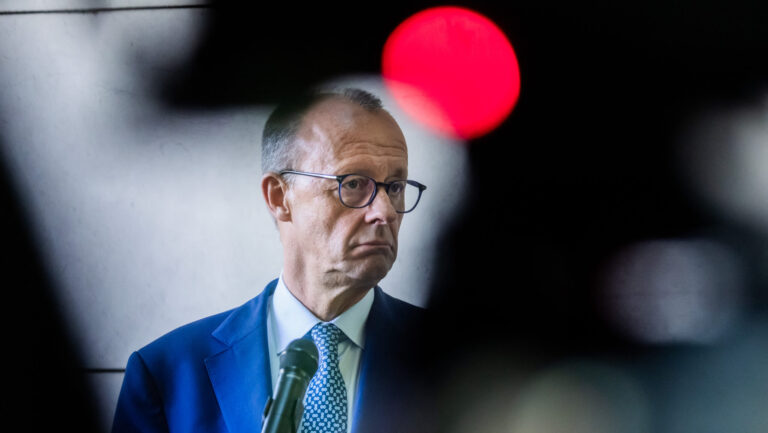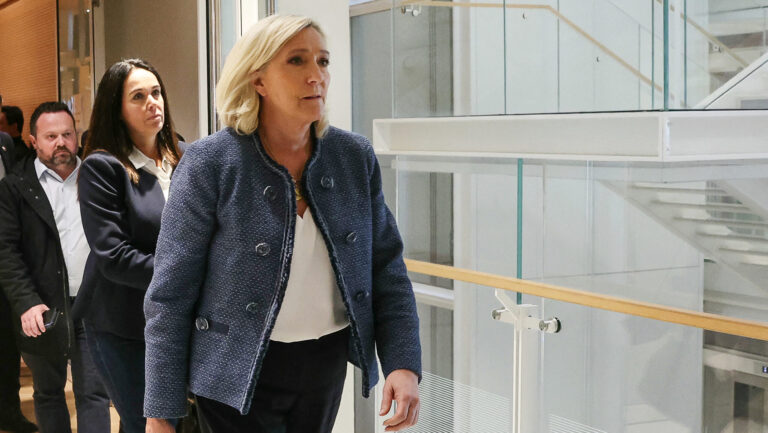The first panel discussion of the second day of the 4th Danube–Heritage Geopolitical Summit, moderated by the International Director of the Danube Institute Dr Kristóf Veres, focused on what the organizers dubbed the ‘competition for moral high ground’. The distinguished speakers were Chairman and Founder of Israel Defense and Security Forum (IDSF) Brigadier General (Ret.) Amir Avivi; Director of Hudson Institute Center for Peace and Security in the Middle East Michael Doran; war journalist Tomasz Grzywaczewski, director of the film Erase the Nation, and a Visiting Fellow at the Danube Institute, as well as Head of the Centre for Geopolitics at Mathias Corvinus Collegium (MCC) Dr Attila Demkó.
The keynote address was delivered by General Amir Avivi, who began by suggesting that the world is currently experiencing a clash of civilizations as described by Huntington, and is on the verge of a third world war. He argued that the world has essentially split into two large blocs: the West and the Chinese–Russian–Iranian axis in the Middle East, a bloc that did not exist two years ago. General Avivi recalled that Israel used to have good relations with Russia, but mostly as a result of the sanctions policy of the West, Russia has allied itself with Iran and China.
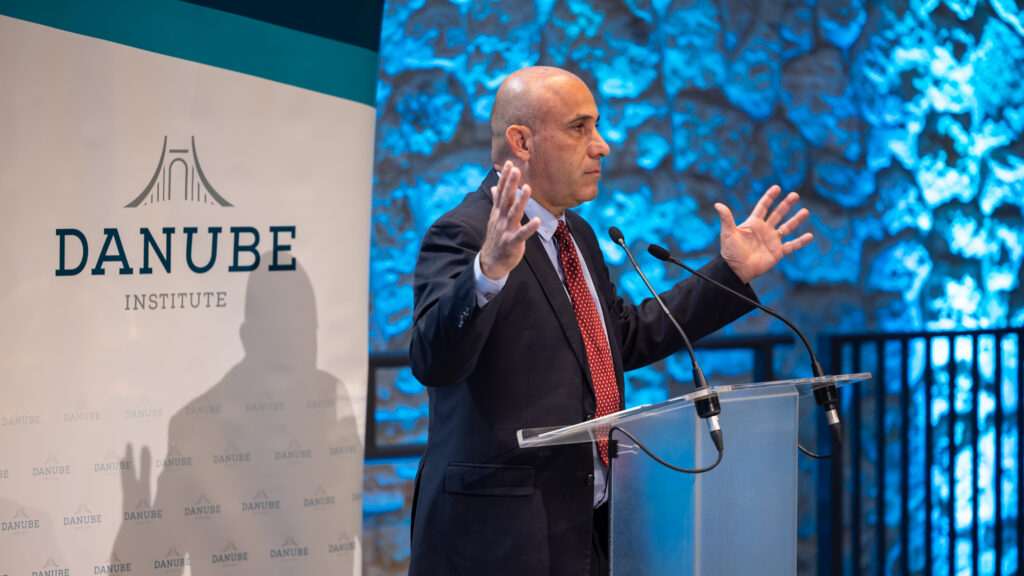
Not only is Russia now more dependent on China, so is Iran, he added. And the BRICS countries are also getting stronger, he reminded, noting that six more countries joined this year. BRICS countries clearly want to change the balance of power globally; they are determined and not afraid to fight, as they see a confused Western society. So the sanctions have backfired on the West, General Avivi nailed down.
He opined that since the West is only using sanctions and no real force, this emboldens nefarious actors. He recalled that when the US pulled its troops from Afghanistan, Iran saw it as a sign that the US is weak, and it could act with impunity. As a result, Israel is currently fighting on a number of different fronts, all of them backed by Iran. General Avivi opined that with a strong America, the 7 October attack could have been avoided.
He, however, concluded on a more positive note, stating that Israel has almost completely defeated Hamas militarily, and while it will take time, he is certain that they will win in Gaza. He added that if the US does not help them, Israel will deal with Iran by itself, and they will not let Tehran become a nuclear superpower.
Tomasz Grzywaczewski followed on stage. The war reporter recalled that in May 2022 during a trip to Chile he and his videographer were confronted by a tax driver who, when hearing that they were Polish and they supported Zelenskyy, insisted that the Ukrainian president is ‘a fascist controlled by America’, and Russia is in fact resisting Western colonialism. He then brought up an example from 10 September in Philadelphia where he witnessed a pro-Palestinian rally, where a white person was shouting ‘white people are occupiers and colonizers’.
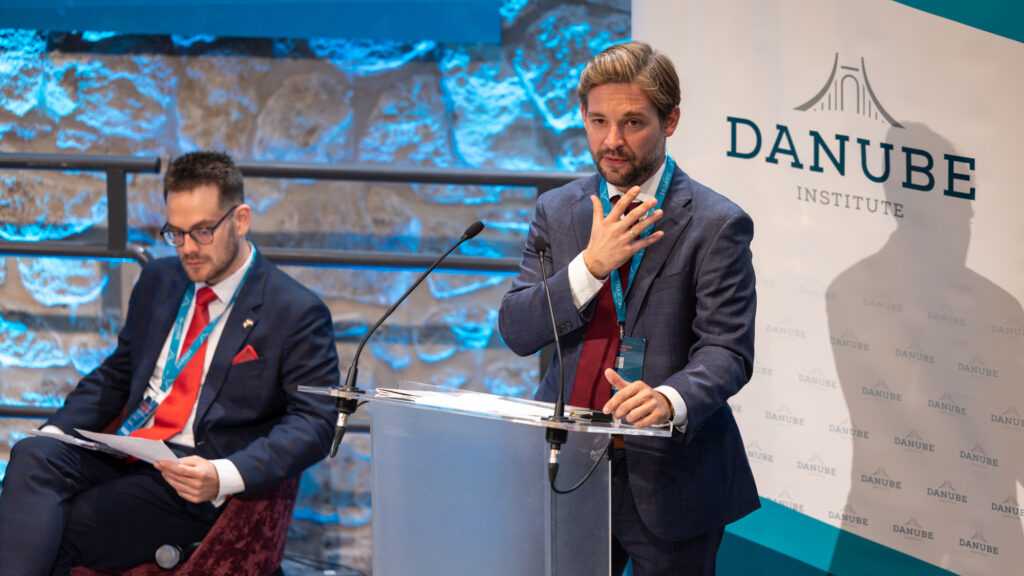
Mr Grzywaczewski highlighted that according to the narrative that in his view characterized the Global South, Ukraine is a tool of Western colonialism, not a victim, and Russia is challenging NATO’s imperialist expansion. Of course, Russia also actively disseminates this narrative, and it resonates strongly in the global south and is emphasized by leftist movements there. The paradox, he then pointed out, is that Russia itself is a colonial empire that extends control over regions outside of its borders. Many also argue that Russia also uses its ethnic minorities from non-Slavic regions as ‘cannon fodder’ in the war on Ukraine, but there seem to be no protests against this anywhere, he concluded.
‘Hungary thinks in terms of realities, not wishes or ideologies’
The next speaker was Attila Demkó who explained the Hungarian position on Ukraine and Israel, a position that is labelled by some as immoral. He said that while Hungary holds that both countries are victims of terrible aggression, it also thinks in terms of realities, not wishes or ideologies.
In the case of Israel, there is a good chance for military victory over Hamas, he suggested, noting that he agrees with General Avivi that the bigger the victory of Israel, the better it is for the rest of the world, because otherwise similar attacks will happen over and over again. He added that a political solution is also needed, but no solution is feasible before an Israeli victory. There must be a full military defeat of Hamas before politics can come into the picture, which is why Hungary supports Israel to go ahead in full force, and does not advocate for a ceasefire.
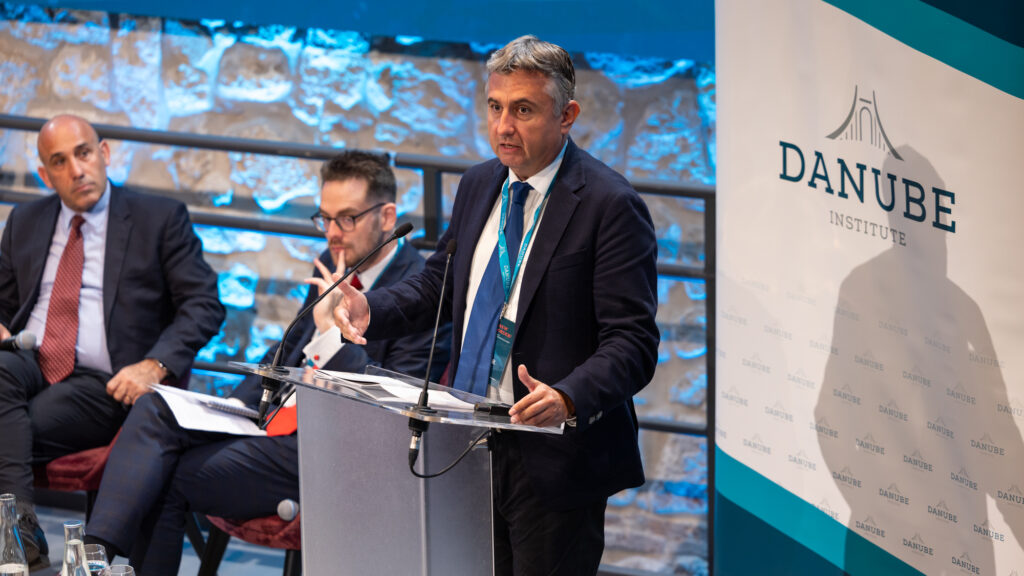
In the case of Ukraine, the chances of a military victory are diminishing in Dr Demkó’s opinion. He said that managing the problem is the reality; there is no direct solution. He stated that realistically speaking, the situation can only be managed, rather than resolved, adding that it will eventually be necessary to have Putin sit down at the negotiating table. Dr Demkó opined that the Hungarian position is moral because it is based on reality and focuses on achieving the optimal result.
Michael Doran focused primarily on the threat posed by Iran in his remarks. He noted that the United States and its allies are gradually losing their military superiority in the Middle East. This decline is notably linked to the growing capabilities of adversaries such as Iran, whose military advances are proving difficult to counter. Iran has developed disruptive military technologies, including drones, ballistic missiles, and cruise missiles, which can be deployed in coordinated strike packages that overwhelm the sensors and interceptors of even the most advanced defence systems.
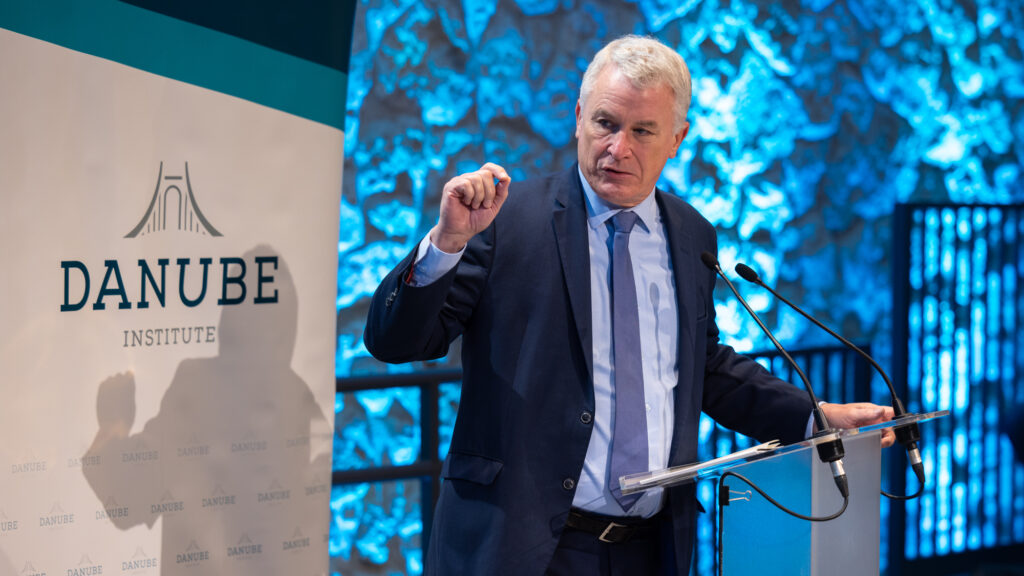
Despite these challenges, US policy in the region under the Obama and Biden administrations has remained one of restraint, particularly when it comes to empowering Israel to respond militarily. This policy, focused on de-escalation and mediation, aiming to improve problematic actors rather than leading a unified front against powers like China, Russia, or Iran, is seriously flawed and unless it changes, ‘the West will lose the Middle East, Mr Doran concluded.
More from the conference:

